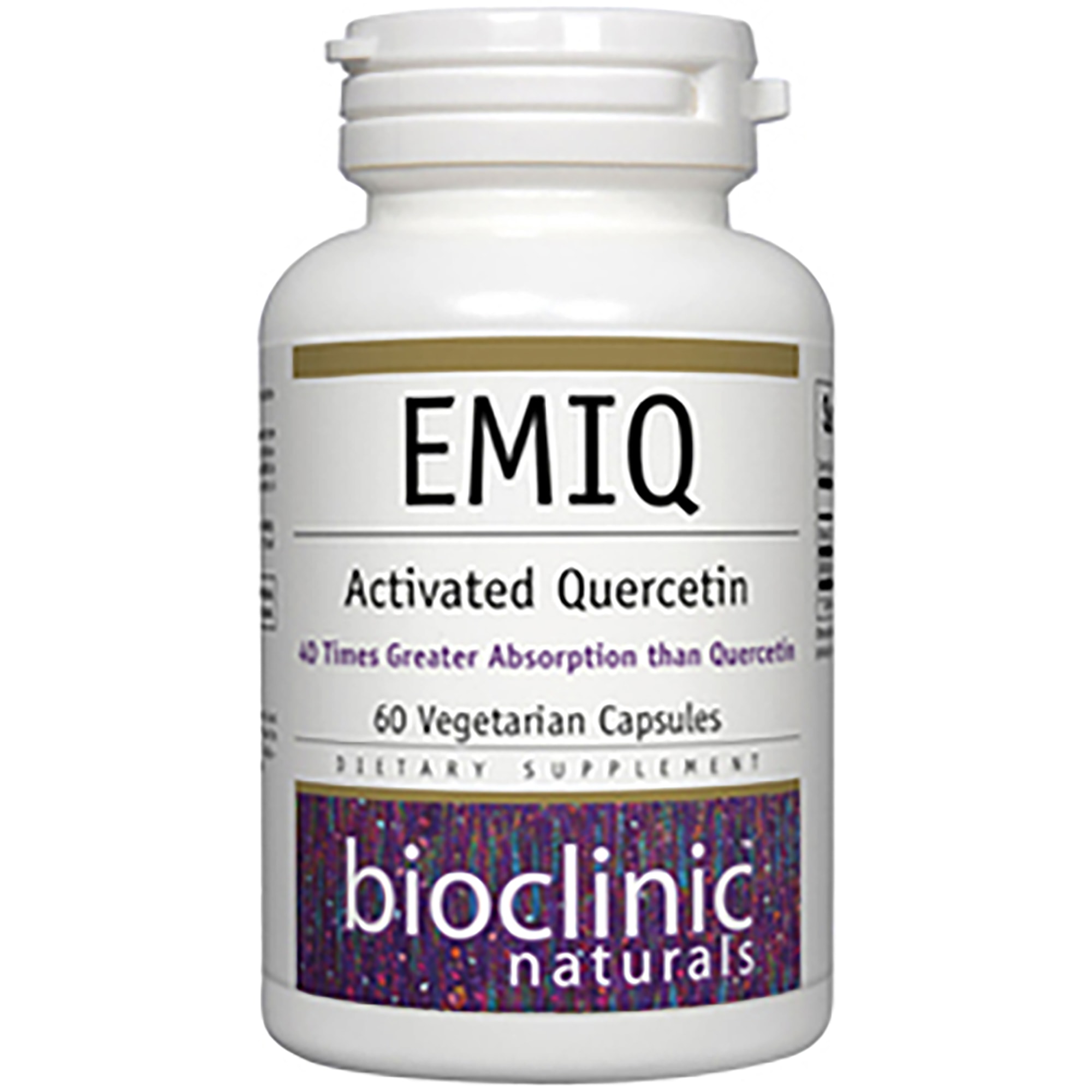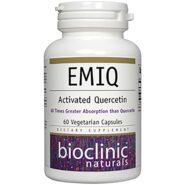Take 1 capsule, 1–2 times per day, or as directed by a health care practitioner. Consult a health care practitioner for use beyond 8 weeks.
Serving Size: 1 Vegetarian Capsule
Amount Per Serving
EMIQ® … 167mg
(Enzymatically Modified Isoquercitrin)
Vitamin C … 50mg
(Calcium Ascorbate)
Other Ingredients: Microcrystalline cellulose, vegetarian capsule (carbohydrate gum [cellulose], purified water), vegetable grade magnesium stearate (lubricant).
Contains no artificial colors, preservatives, or sweeteners; no dairy, starch, sugar, wheat, gluten, yeast, soy, egg, fish, shellfish, animal products, salt, tree nuts, or GMOs. Suitable for vegetarians/vegans.






Reviews
There are no reviews yet.